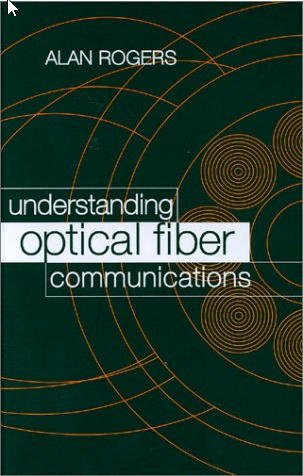Prof. Alan John Rogers
11.05.1936 - 23.10.2013
Physicist and former head of department at King's College London. Author of over 200 scientific papers in the areas of photonics, microwaves and electrons; initiator of 14 patents. Double first in Natural Sciences Tripos, University of Cambridge (Christs College). PhD in space physics.
Husband of Wendy and father of Daniel and Gareth. Grandpa of Daisy and Alice. Lifelong socialist and Chelsea fan.
Contact
Bibliography

Essentials of Optoelectronics
In his first book, written in 1996 with the first edition published the following year, Alan Rogers tackles the topic to which he dedicated the greater part of his career: optoelectronics (or 'photonics', as the discipline had come to be known by the time of the second edition).
As in all his work Alan approaches the subject from first scientific (the nature of light, wave/particle duality) and mathematical (maxwell equations, fourier analysis) principles, presenting "an entirely self-contained development of the essentials of the subject". When Dad wanted something done properly, you can guess who he turned to...
While deeply technical and firmly in the scientific tradition, Alan does allow himself the occasional speculation into the possible impacts of the technology on society as a whole:
"...it is clear that even to go some way down this path is to progress society well beyond its present complexion, with optoelectronic robots to perform most of the repetitive, functional tasks, and optoelectronic information storage/access flow removing the necessity for the transport of either people or objects."
There's even a bit of social criticism:
"Prior to [Galileo's] time experimentation was regarded as a distinctly inferior, rather messy, activity, definitely not for true gentlemen"
...and his assessment of mankind's endeavours prior to the scientific method seems to me characteristic of his brilliant, if perhaps a little single-minded, intellect:
"The ancient Greeks speculated on the nature of light from about 500 BC. The practical interest at that time centred, inevitably, on using the sun's light for military purposes; and the speculations, which were of an abstruse philosophical nature, were too far removed from the practicalities for either to have much effect on the other."

Understanding Optical Fiber Communications
In this his second book, written and published in 2001, Alan Rogers reaches out to a broader audience with an entry-level discussion of his discipline. He places optical fibre communications within the broader topic of telecommunications in general, and discusses its history and explains its development from first scientific principles.
As in his first book, Alan uses his final chapter to consider the impact of this technology on the future.
"The real advantages of universal access to the world's knowledge are only just becoming apparent ... Knowledge and expertise once the jealously guarded property of governments, institutions, companies and professions will become much more widely available. This presents dangers as well as benefits."
I wonder what he would have made of Facebook and Donald Trump.
I find it interesting now that Dad was very much concerned with the transmission technology: the connections between physical locations and the bandwidth available. Today's discussion is much more concerned with the data itself and its storage.
From Chapter 1:
"One of the primary reasons for our dominance in the animal kingdom is that we are so good at communication."
What we choose to say, of course, may be another matter....

Polarization in Optical Fibers
In his third and final book (2008) Alan Rogers presents a more advanced discussion of the specialist topic in which he was considered one of the world's foremost experts: polarisation in optical fibres.
This book was aimed at third year or post-graduate students and completed what Alan regarded as his trilogy, covering his life's work at introductory, mid- (undergraduate) and advanced (post-graduate) levels.
Reflecting personally on these books now, I am struck by the time and effort that has gone into them: not only in the writing and editing of the three volumes themselves, but in the lifetime of research papers, patents and university teaching that went before. None of this was achieved with internet search tools, after all (even if they were available, Dad didn't really know how to use them) - it was hours spent in the study with a couple of reference books and walks on the common to mull things over.
It helped that Mum had lunch on the table and washed his underpants of course.
What also occurs to me is the difference between an aggregated, wikipedia-like mashup of facts that you might well find at the click of a button, and the distillation of a lifetime of knowledge in a single man's mind, with the insights and perspective that offers. Long live books!